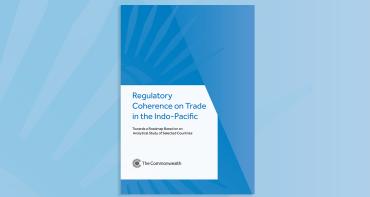Commonwealth Blue Charter
The Commonwealth Blue Charter is an agreement by Commonwealth countries to actively cooperate in addressing the myriad of ocean-related issues and commitments that they face. The world’s ocean is essential to life on our planet. Billions of people depend on it for their livelihoods. Yet human activity is increasingly putting the health of this crucial natural resource in peril. Blue ecosystems are being degraded and destroyed at an unprecedented rate and this is not an issue any single country can solve.
In April 2018, the Commonwealth Blue Charter was adopted by member countries, to guide cooperative action on ocean issues. Commonwealth Blue Charter Action Groups are member-driven, led by Commonwealth Blue Charter ‘Champion’ countries. Working together, Action Groups can unlock the experiences and knowledge of 56 nations.
Maritime boundaries
Legal uncertainty on the extent of maritime jurisdiction and entitlements impacts a coastal state’s ability to manage its marine resources and can lead to conflict over access to resources, stifle investment, and hinder marine environmental protection and the development of alternative energy sources. Lack of clarity over entitlements to resources and inadequate management frameworks can also undermine the economic potential of the seas for sustainable exploitation and management of fisheries, tourism, minerals, marine renewable energy and marine biotechnology.
Reaching permanent or provisional agreement on overlapping entitlements allows for the continuation of economic activity, and in the face of rising sea levels, securing maritime boundaries and giving due publicity to these limits provides international recognition against the impacts of ocean related climate change.
Under the 1982 United Nations Convention on the Law of the Sea, many coastal Commonwealth member states are entitled to increase their maritime zones space and make extended continental shelf submissions. For nearly three decades the Secretariat has provided advice to member countries to help them exercise their rights under international law. Over this period, we have provided legal and technical support to more than 30 countries.
However, some of our smallest and most vulnerable states have yet to agree on maritime boundaries with their neighbours. In the Pacific region alone, national entitlements overlap in at least 48 marine areas. Only 21 are covered by treaties. Of the 51 extended continental shelf submissions lodged with the UN up to December 2014, 17 were prepared with our support. Commonwealth member countries have successfully secured more than 1.8 million square kilometres of seabed with our assistance - with more still to be claimed at the United Nations.
Ocean governance
Under international law, coastal states have jurisdiction, control and responsibilities regarding economic activities within waters extending 200 nautical miles and beyond from their coastlines and on their continental shelf. For some Commonwealth coastal states, this jurisdiction far exceeds their terrestrial areas.
The growing popularity of terms such as ‘Blue Economy’ and ‘Blue Growth,’ and the inclusion of a United Nations Sustainable Development Goal devoted to the oceans (SDG 14) reflect international recognition of the value of the ocean as a potential source of expanded economic growth.
For more than a decade, we have been a primary partner of member countries in the acquisition of greater areas of maritime space and developing blue economy and blue growth approaches towards realising sustainable management of their ocean areas and growth centred on an ocean-based economy.
We promote knowledge exchanges and provide targeted advice and technical assistance to member on the development of legal and regulatory frameworks including ocean policies and strategies for tackling increasing threats to ocean health and the sustainable use of ocean resources. As well as assisting members on ocean governance within their national jurisdictions, we have also initiated a programme for members on the ratification and implementation of the Biodiversity Beyond National Jurisdiction (BBNJ) Agreement, also known as the ‘High Seas’ Treaty.
We support member countries in building resilience and unlocking the value of the blue economy by promoting principled ocean governance focused on integrated management of oceans considering economic, social and environmental factors.



